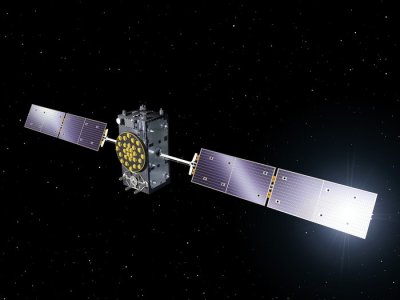The European Space Agency successfully launched two new Galileo satellites into orbit last Friday from Europe’s Spaceport in French Guiana. The two satellites took off at around 2:08 GMT on September 11 and were numbers 9 and 10 in the constellation. This most recent launch is the second of four launches scheduled for 2015 and brought the total number of Galileo satellites in orbit to ten.
This launch marks the one-third mark in completion of the Galileo constellation, which is expected to have a total of 30 satellites by 2020. The project itself has had several problems in the last few years, but has come back strong this year with two successful launches and the correction of errant orbits of two mislaunched satellites from last year.
“The deployment of Europe’s Galileo system is rapidly gathering pace,” Jan Woerner, director general of the European Space Agency (ESA) said in a statement. “By steadily boosting the number of satellites in space, together with new stations on the ground across the world, Galileo will soon have a global reach. The day of Galileo’s full operational capability is approaching. It will be a great day for Europe.”
According to a GPS World article, Galileo expects to hit its target of 30 satellites by 2020 with next year’s introduction of a new kind of launcher which will be capable of launching four satellites at once instead of only two. Galileo has been in production since around 2005 and is a collaboration of several European countries. Once completed, Galileo is expected to be the first commercial (versus governmental) navigation satellite constellation.


My question is when will we see handheld GPSr’s that use GPS, GLONASS and Galileo simultaneously? More satellites equals better coordinates after all….
I wouldn’t expect anything until well after 2020, when the constellation is scheduled to be complete. That’s assuming there aren’t any more major issues between now and then, of course. I know it took a couple of years after GLONASS was up and running before anyone started making GPS/GLONASS devices, so I imagine that adding Galileo would be about the same timeline. Good news is that unlike GPS and GLONASS, Galileo is meant to be a commercial enterprise, so there’s a good chance it will happen eventually.